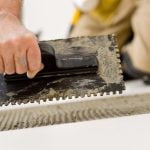Are you wondering, “can you deduct home improvement expenses?” Understanding the potential tax implications of home improvement projects is crucial for homeowners. The tax deductions for home improvements can have a significant impact on your overall financial picture and it’s important to be well-informed about what qualifies and what doesn’t.
Home improvement expenses can encompass a wide range of projects, from renovations to repairs, and it’s essential to know how these expenses may be treated for tax purposes. Whether you’re considering a major remodel or just making some necessary upgrades, knowing the ins and outs of deductions can potentially save you money in the long run.
In this article, we will delve into the world of home improvement expenses and tax deductions. We’ll explore what qualifies as home improvement expenses, the different types of deductible expenses, eligibility criteria for claiming deductions, the importance of proper documentation, any special cases or exceptions that may apply, recent changes in tax laws related to home improvements, and why consulting with a tax professional is beneficial.
Understanding these key points will empower homeowners to make informed decisions when it comes to their home improvement projects and their financial implications.
What Are Home Improvement Expenses?
Home improvement expenses refer to the costs incurred to make upgrades, renovations, or additions to a residential property. These improvements are intended to enhance the functionality, aesthetic appeal, and value of the home. It’s important for homeowners to understand how these expenses can affect their taxes.
Qualifying Expenses
Generally, home improvement expenses include any work that substantially adds value to the property or prolongs its useful life. This can encompass a wide range of projects such as kitchen remodels, bathroom renovations, adding a new room, upgrading the HVAC system, installing energy-efficient windows or solar panels, and more.
Examples of Common Home Improvement Projects
Some common examples of home improvement projects that can qualify for tax deductions may include landscaping improvements, installing a new roof or gutters, adding an in-ground swimming pool or spa, making accessibility modifications for disabled individuals, and any other structural enhancements that increase the value or extend the lifespan of the property. It’s important to note that regular maintenance and repairs usually do not qualify as deductible home improvement expenses.
Types of Home Improvement Expenses
Home improvement expenses can encompass a wide range of projects and costs that are incurred in order to improve the quality or value of a home. Understanding the different types of expenses that may be deductible is essential for homeowners who want to maximize their tax benefits while investing in property upgrades. Here are the main types of home improvement expenses that can potentially qualify for deductions:
1. Material Costs: The materials used for home improvement projects, such as lumber, flooring, roofing materials, paint, and fixtures, can often be included as deductible expenses. These costs are directly related to the physical upgrades made to the property and are typically eligible for tax deductions.
2. Labor Expenses: In addition to material costs, labor expenses associated with home improvements may also be deductible. This includes payments made to contractors, builders, electricians, plumbers, and other professionals hired to complete renovation or remodeling work.
3. Equipment and Tools: Any equipment or tools purchased specifically for home improvement projects can also be considered as deductible expenses. This may include power tools, machinery rentals, and heavy-duty equipment needed for construction work.
It’s important for homeowners to keep in mind that not all home improvement expenses will qualify for deductions. In some cases, personal aesthetic upgrades that do not add significant value to the property may not be eligible for tax benefits. Additionally, any repairs or maintenance work that simply restores the property to its original condition without improving it generally does not qualify as a deductible expense.
Understanding the distinction between different types of home improvement expenses is crucial when it comes to determining eligibility for tax deductions. By properly documenting these expenses and staying informed about relevant tax laws and regulations, homeowners can effectively navigate their options for potential deductions while undertaking property improvements.
Eligibility for Deductions
When it comes to claiming deductions for home improvement expenses, there are specific criteria that must be met in order to qualify. The IRS allows homeowners to deduct certain expenses related to home improvements, but it is essential to understand the eligibility requirements. One key factor is determining whether the expenses can be categorized as repairs or improvements for tax purposes.
In general, home improvement expenses that add value to the property, prolong its life, or adapt it for new uses can be considered as eligible for deductions. This can include projects such as adding a new room, installing a heating system, or making structural changes. On the other hand, routine repairs and maintenance typically do not qualify as deductible expenses. It is important to differentiate between these categories when assessing eligibility for deductions.
Additionally, homeowners must meet certain criteria to claim these deductions, such as owning and using the property as a primary residence. There may also be limitations or restrictions on the types of expenses that can be deducted. For example, luxury items or improvements made solely for aesthetic purposes may not be eligible for deductions. Understanding these eligibility requirements is crucial in determining which home improvement expenses can be deducted on your tax return.
It is important to note that personal and business-related home improvements have different implications for tax deductions. While some personal home improvement expenses may qualify for deductions, those related to a home office or rental property could have separate rules and requirements. Homeowners should carefully evaluate the specific circumstances of their home improvement projects to ensure they meet the eligibility criteria for deductions.
Documentation and Record-Keeping
When it comes to home improvement expenses, proper documentation and record-keeping are crucial for ensuring that you can deduct these expenses on your taxes. Keeping accurate records not only helps you stay organized, but it also provides evidence of the costs incurred for the improvements. This documentation will be essential in the event of an audit, so it is important to maintain thorough records.
First and foremost, it’s important to keep all receipts and invoices related to your home improvement projects. This includes materials purchased, contractor fees, and any other associated costs. These receipts serve as proof of the expenses you’ve incurred, which can be used when claiming deductions on your tax return.
Another important aspect of record-keeping for home improvement expenses is documenting the nature of the improvements. Include before and after photos where applicable, as well as any design plans or sketches created for the project. This additional documentation can help demonstrate the work that was done and justify the expenses claimed.
In addition to physical documents, consider creating a spreadsheet or digital file to track all home improvement expenses. This can provide a clear overview of the costs incurred and make it easier to calculate deductions when filing your taxes. By maintaining detailed records of your home improvement expenses, you can ensure that you are well-prepared to claim deductions in accordance with tax laws.
| Documentation | Record-Keeping |
|---|---|
| Receipts and Invoices | Before and After Photos |
| Digital File or Spreadsheet | Design Plans or Sketches |
Special Cases and Exceptions
When it comes to deducting home improvement expenses, there are certain special cases and exceptions that homeowners should be aware of. Understanding these specific scenarios can help ensure that you are maximizing your tax benefits and avoiding any potential issues with the IRS.
Here are some special cases and exceptions to consider when it comes to deducting home improvement expenses:
1. Rental Properties: If you own rental properties, you may be able to deduct certain home improvement expenses as business expenses. This can include repairs, maintenance, and improvements that are necessary for the upkeep of the property and can be claimed on your tax return.
2. Energy-Efficient Upgrades: The government offers tax credits for certain energy-efficient home improvements, such as solar panels, energy-efficient windows, and HVAC systems. These credits can reduce your tax liability dollar for dollar, providing additional savings on top of potential deductions.
3. Disaster Recovery: In the unfortunate event of a natural disaster or unexpected damage to your home, you may qualify for special deductions for repair and restoration costs. It’s important to keep detailed records of the expenses incurred during the recovery process in order to claim them on your taxes.
It’s important to note that each of these situations has specific requirements and limitations for claiming deductions. Consulting with a tax professional can provide valuable guidance on how these special cases may apply to your individual circumstances. By staying informed about these exceptions, homeowners can make informed decisions about their home improvement projects and potential tax benefits.
In addition to understanding these special cases and exceptions, homeowners should also stay updated on any changes in tax laws related to home improvement deductions. Legislation can impact eligibility for deductions and affect the overall tax implications of home improvements.
Changes in Tax Laws
The tax laws related to home improvement expenses can change from year to year, so it’s essential for homeowners to stay updated on any recent updates or modifications. These changes can impact the eligibility and limitations of deductions for home improvements, affecting how taxpayers can claim these expenses on their tax returns.
For example, in recent years, there have been adjustments to the guidelines for energy-efficient home improvements. The IRS offers tax credits for specific energy-saving upgrades, such as installing solar panels or energy-efficient windows. These tax credits encourage homeowners to make environmentally friendly improvements to their homes while also providing valuable financial incentives.
Furthermore, changes in the tax laws may also affect the treatment of home improvement expenses for rental properties or investment properties. Deductions for these types of properties can have different rules and limitations compared to deductions for a taxpayer’s primary residence. It’s crucial for property owners to be aware of these distinctions and how they could impact their tax obligations.
In addition, recent legislative changes may have altered the depreciation rules for certain types of home improvements, particularly those related to business use or rental purposes. Understanding how these changes affect depreciation allowances can help property owners make informed decisions about their investments and tax planning strategies.
| Tax Law Changes | Impact |
|---|---|
| Energy-Efficient Home Improvements | Positive impact through tax credits |
| Rental Properties | Different rules and limitations compared to primary residence |
| Depreciation Rules | Affects business use or rental purposes |
Consultation With a Tax Professional
Can Provide Clarity and Peace of Mind
Here are some important reasons why consulting with a tax professional is beneficial.
Can Assess Your Specific Circumstances
, such as the type of home improvement projects completed, your financial status, and any other relevant factors. This personalized approach ensures that you maximize your potential for deductions while staying compliant with tax laws.
Can Become Even More Convoluted
A qualified tax professional can navigate these intricacies and provide tailored advice to optimize your deductions while avoiding any pitfalls that could lead to non-compliance.
Due Diligence in Claiming Deductions
Their expertise can also be invaluable in providing the necessary documentation and explanations to support your claims during an audit. This added layer of protection offers peace of mind for homeowners who want to ensure their compliance with tax laws. Therefore, consulting with a tax professional helps homeowners solidify their position should they face scrutiny from taxing authorities.
Conclusion
In conclusion, understanding the tax implications of home improvement expenses is essential for homeowners. It is important to know what qualifies as a deductible expense and how to properly document and claim these expenses on your taxes. Home improvement projects can range from simple repairs to major renovations, and knowing which ones can be considered for deductions can potentially save you money in the long run.
As discussed in this article, there are specific requirements for claiming home improvement expenses as deductions, and it is crucial to keep accurate records of all related expenses. Additionally, recent changes in tax laws may impact the eligibility for deductions, making it vital for homeowners to stay informed about any updates that can affect their tax filings.
Ultimately, seeking advice from a tax professional can provide personalized guidance, especially for complex situations or special cases. Consulting with an expert can help ensure that you are maximizing your potential tax savings while staying compliant with the latest regulations. By being informed and proactive about claiming home improvement expenses as deductions in accordance with tax laws, homeowners can make the most of potential tax benefits available to them.
Frequently Asked Questions
Can You Use Home Improvements as a Tax Write Off?
Home improvements are not typically tax-deductible, but they can sometimes increase the cost basis of your home for tax purposes when you sell it. This means that the cost of the improvements can be used to decrease any potential taxable gain from the sale of your home.
How Do I Prove Home Improvements Without Receipts?
When proving home improvements without receipts, it’s important to gather any other supporting documentation you may have, such as credit card statements, bank records, or contracts with contractors. These can help establish the cost and nature of the work done.
Is Painting a House Tax Deductible?
Generally, painting a house is considered a maintenance expense rather than a capital improvement, so it would not qualify as a tax deduction. However, if the painting is part of a larger home improvement project that does qualify for a deduction (such as energy-efficient upgrades), then the cost of painting may be included as part of that deduction.

I’m thrilled to have you here as a part of the Remodeling Top community. This is where my journey as an architect and remodeling enthusiast intersects with your passion for transforming houses into dream homes.





